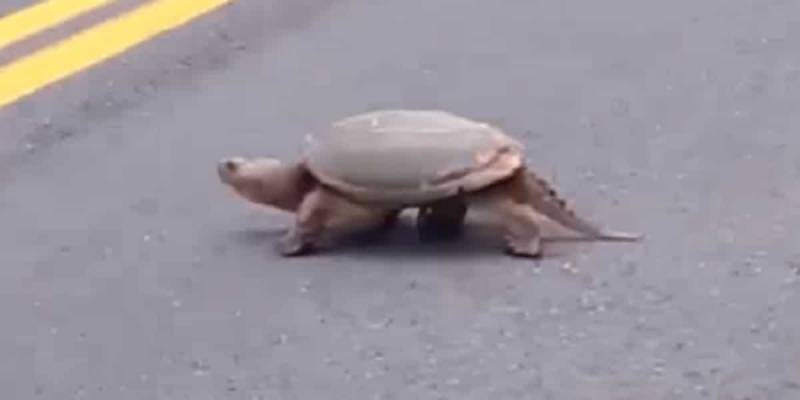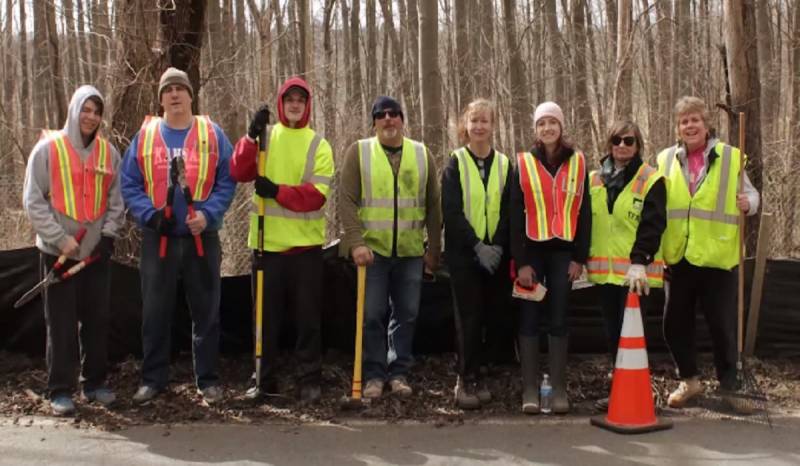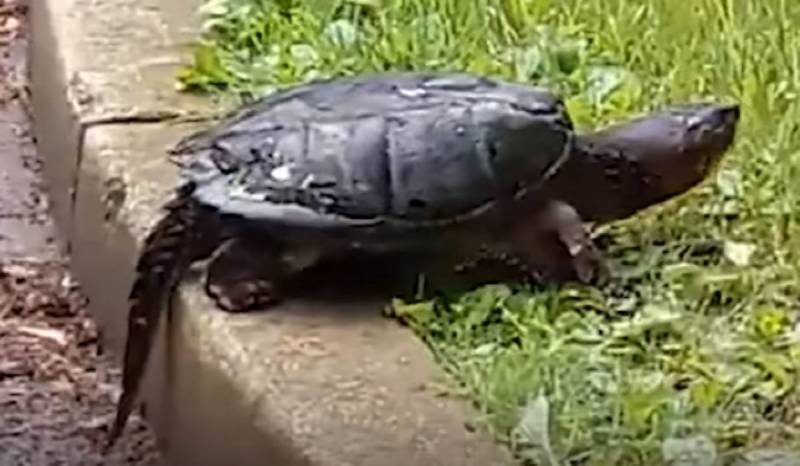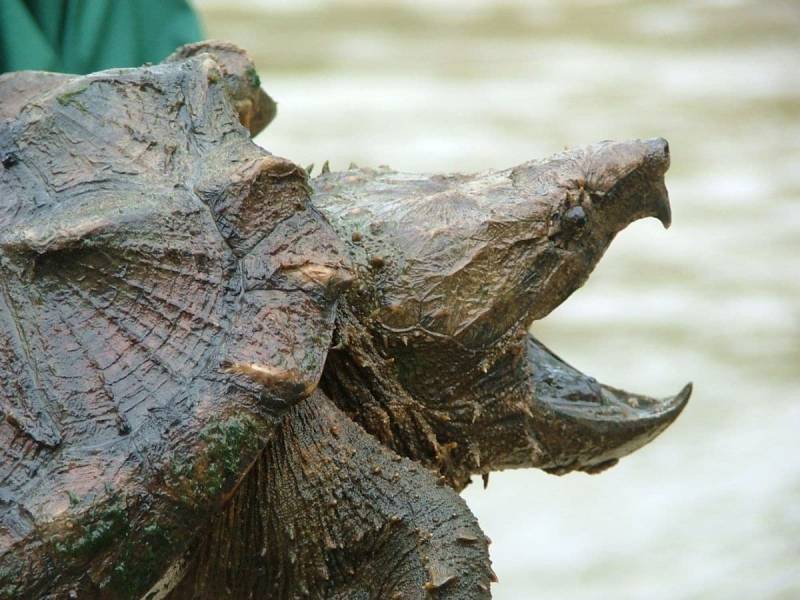Содержание
Every spring and summer, snapping turtles make death-defying trips all across the eastern and parts of the southern U.S.
It’s a journey that’s fraught with dangers for adults as they cross busy roads to find suitable places to lay their eggs, and it’s equally dangerous for the babies that hatch because hungry predators like raccoons and birds are always on the lookout for an easy meal. Because they are so tiny, baby snappers are difficult to see on the road.
Snapping Turtles Face Many Risks
Fortunately, snapping turtles making their way around the tiny hamlet of Blauvelt, New York (we’re talking less than 6,000 people), a group of volunteers don brightly colored clothing and act as crossing guards for the aquatic reptiles as they make their way from nesting spot back to the wetland areas where they live. And to keep the turtles on the “safer” parts of the Rockland County highway, the volunteers have also put up a fence and built nesting mounds for the turtles. They have also installed signs to alert drivers that turtles may be on the road.

Late last week, one driver who stopped to let one of the armored reptiles pass, commented on just how important these volunteers are, USA Today reports.
“I saw a dead one a few days ago,” the man told volunteers Carolyn Hill, her husband Pat, and neighbor Annette Burke. “It was a pretty big turtle. It was a shame. I felt horrible for it. People need to slow down.”
Hill commiserated with the driver and mentioned something particularly sad.
“It is terrible. We think someone intentionally did it, too.”
Fortunately, it appears that no snapping turtles were killed by cars last year, but that makes the death of even just one turtle all the more tragic this year. Hill noted that the beauty and the wildness of the area are what originally drew her family here.
“It’s beautiful, yet tragic at the same time,” she said of this place, which has gained the name “The turtle zone.”

“We love this area and we moved here because we love all of this,” said Hill. “We’re wildlife lovers. But having to see turtles getting hit by cars is tragic.”
Nesting time for the local population of snapping turtles extends from late May to early June and lasts about two weeks. During this time, the reptiles, which resemble four-legged tanks, are commonly seen trudging along the road between Blauvelt and West Nyack.

Female snapping turtles leave the safety of their wetlands
Crawling the streets ringing the Hackensack River, the turtles must face traffic along the way, only to turn around and do this all over again to reach their wetland homes.
“People will say, ‘Oh, they’ve been crossing forever, it’s natural,” Hill said. “What’s unnatural is seeing them get hit by cars.”
The common snapping turtle (Chelydra serpentina), featured in this story, is perhaps fittingly, the state reptile of New York, MentalFloss reports. These turtles can weigh up to 75 pounds in the wild, and up to 86 pounds in captivity. Because they are omnivores, their diet is quite varied. Aquatic plants make up about 65 percent of their diet, with fish balancing out the rest of their diet. They are also fond of the occasional small mammal, snake, crayfish, frogs, worms, and beetles.
While the common snapper can get pretty hefty, it has a larger, much heftier, and less common cousin — the alligator snapping turtle (Macrochelys temminki), which can weigh as much as 200+ pounds. It was originally thought that only one species of this enormous critter resided in the U.S., but recent studies have shown there are three species of alligator snappers in the country, Sci-News reports.

Despite this critter’s fearsome appearance (let’s face it, the alligator snapper has a face that could scare a gargoyle), alligator snappers were once the main ingredient in Campbell’s turtle soup in the 1960s. Turtle numbers plummeted as a result of the soup’s popularity. And that in turn, caused Campbell’s to stop making the soup. Fortunately. However, even though all this occurred decades ago, this poor turtle’s numbers have never recovered.
And that is truly sad.
Common snapping turtles aren’t considered endangered, but their species is in decline, according to the state Department of Environmental Conservation. This fact, plus the plight of it’s larger cousin makes it clear why these turtles should be protected.
That’s exactly what Hill and nine of her fellow volunteers are doing.

They don their bright orange safety vests and do what they can to protect the turtles. Hill is also a founding member of the group the Turtles of Western Highway, a grassroots organization that’s been working over the past decade to protect the turtles. The group is actively seeking volunteers, so if you’re interested in helping snapping turtles, check out the link above.
The good news is that the efforts appear to be paying off. Streets are becoming safer for the turtles, Burke noted.
“We certainly have had less fatalities,” she said. “For the most part cars are very cooperative. But some people are almost antagonistic. We’ve had some people yell and curse at us to get off the road. We’ve also seen cars intentionally hit turtles.”
How selfish is it that some people resort to this type of cruelty? It’s a good thing that snapping turtles have these kind volunteers in their corner.
Snapping turtles have a long history
Amazingly, these remarkable turtles have a 90 million year history. And in that time, they have changed very little. Let’s hope they continue to thrive, especially with the help of people like Carolyn Hill and Annette Burke.

You can see how the volunteers help the turtles in the video below.
Featured image by Animalkind via YouTube video










